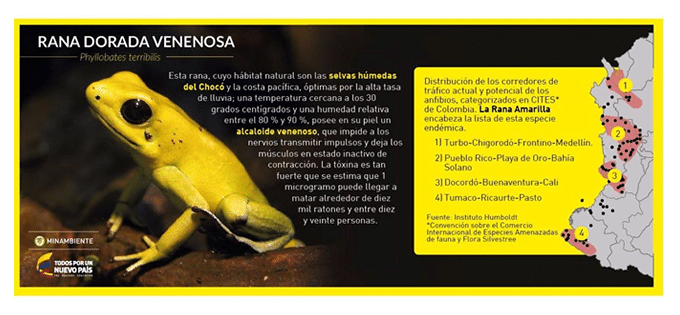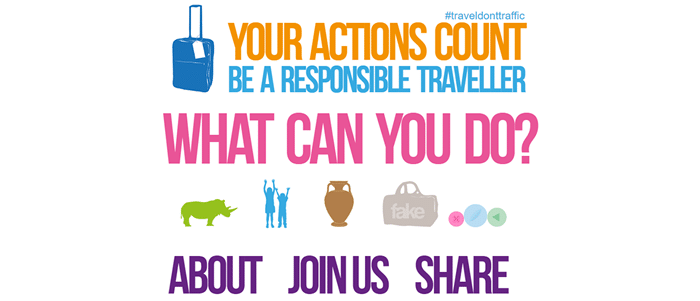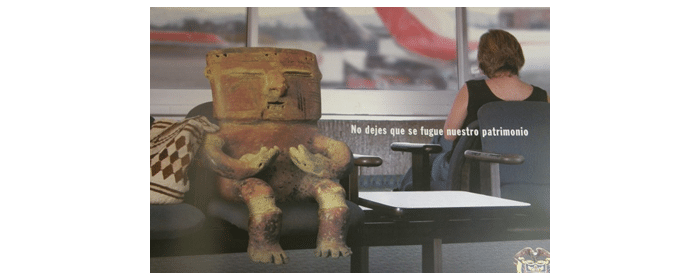Sustainability

SUSTAINABLE POLICIES
Arrampicata travel and adventure is a travel agency that offers tourism products suited to the needs and expectations of each client. It offers ecotourism services, adventure tourism, cultural and traditional tourism. To achieve its objective, it has a sustainable management system that respects the local communities, the environment, and the cultural heritage of each destination. It also supports the local economy by acquiring the products of each region, implementing programs that reduce the negative impacts can generate in the development of each activity and promoting in the customers the importance of respecting the environment and cultural heritage. Special emphasis is placed on the prevention of sexual exploitation and commercialization of children and adolescents. It is the commitment of Arrampicata travel and adventure to identify dangers, evaluate and assess the risks, to promote healthy behaviors that improve health and / or prevention in all employees and collaborators involved in the business
GOALS
 To achieve the expectations and needs of our customers
To achieve the expectations and needs of our customers
 To inform our customers about the codes of behavior of each destination
To inform our customers about the codes of behavior of each destination
 To acquire products and services from local communities
To acquire products and services from local communities
 To accomplish the planned sustainable programs
To accomplish the planned sustainable programs
 To watch and monitor the risks and dangers identified in the SST
To watch and monitor the risks and dangers identified in the SST
ÉTHIC CODE
In order to comply with our sustainability policy and the sectorial technical norm NTS-TS 003, we commit ourselves to comply with the following guidelines within our daily operations and within the services provided in Arrampicata travel and adventure:
• To avoid the sexual or commercial exploitation of children and adolescents.
• To avoid child labor exploitation.
• Not to promote establishments or providers of tourism services where minors are exposed, directly or directly, to sexual and commercial exploitation.
• To communicate opportunely to the competent authorities of any suspicion of sexual and commercial exploitation of children and adolescents.
• To raise awareness among our suppliers and customers about the seriousness of supporting the commercial, sexual exploitation of children and adolescents.
• Not to generate misleading advertising or negatively affect the natural and cultural heritage of our country.
• To avoid discrimination based on race, gender or physical condition.
PROGRAMS FOR SUSTAINABILITY MANAGEMENT
 Integral management of residues
Integral management of residues
 Efficient use of energy
Efficient use of energy
 Co-participation with companies and foundations
Co-participation with companies and foundations
 Native communities training
Native communities training
REGULATIONS

FAUNA AND FLORA
We do not support the illegal trafficking of flora and fauna species. We respect and promote the conservation of our biodiversity and in accordance with the law 17 of 1981 we take actions to prevent, punish and reject any act that abuses and threatens the life of the animal species of the country and to prevent actions against the environment according to what is established by law 1333 of 2009.
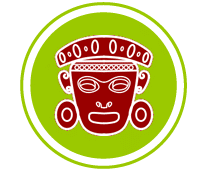
CULTURAL HERITAGE
We do not support the illegal trade of cultural goods and we respect and promote the conservation of our culture, in accordance with the provisions of Law 63 of 1986 for the prevention of illegal traffic of the country's cultural property and Law 1185 of 2008 that seeks safeguarding , protection, sustainability, disclosure and encouragement of the nation's cultural heritage.
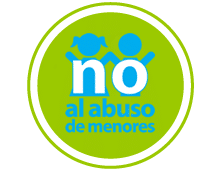
SEXUAL EXPLOITATION
In compliance with the law 679 of 2001 established to prevent and counteract exploitation, pornography and sexual tourism with minors, we warn the tourist that the exploitation and sexual abuse of minors in the country is criminally and administratively sanctioned. Likewise, in order to comply with Law 1336 of 2009 and Resolution 3840 that complements Law 679, Arrampicata, travel and adventure has a code of ethics to prevent and prevent the sexual exploitation of children and adolescents in the tourism sector.
PATRIMONY
Remember that we have the following natural and cultural heritage declared by UNESCO, which we must respect and help preserve:
 Marimba music and traditional songs of the South Pacific of Colombia (Nariño, Cauca and Valle del Cauca)
Marimba music and traditional songs of the South Pacific of Colombia (Nariño, Cauca and Valle del Cauca)
 Palenque´s cultural space in San Basilio-Bolívar
Palenque´s cultural space in San Basilio-Bolívar
 Barranquilla`s carnival – Atllantic
Barranquilla`s carnival – Atllantic
 Holy week processions in Popayán-Cauca
Holy week processions in Popayán-Cauca
 Blacks and whites carnival -Nariño
Blacks and whites carnival -Nariño
 Normative System of the Wayuús applied by the pütchipü’üi (“palabrero- wordy”)-Guajira
Normative System of the Wayuús applied by the pütchipü’üi (“palabrero- wordy”)-Guajira
 Traditional knowledge of the jaguar shamans of Yuruparí-Vaupés
Traditional knowledge of the jaguar shamans of Yuruparí-Vaupés
 San Francisco de Asís Festival-Quibdó
San Francisco de Asís Festival-Quibdó
 Santa Cruz historical center in Mompox-Bolívar
Santa Cruz historical center in Mompox-Bolívar
 Coffee heritage landscape of Colombia (Risaralda, Caldas, Quindío y Valle del Cauca)
Coffee heritage landscape of Colombia (Risaralda, Caldas, Quindío y Valle del Cauca)
 San Agustín´s archeological Park -Huila
San Agustín´s archeological Park -Huila
 Tierra adentro National Park
Tierra adentro National Park
 Los Katios National Park (Chocó, Antioquía)
Los Katios National Park (Chocó, Antioquía)
 The port of Cartagena, the fortresses and the whole monumental complex- Bolívar
The port of Cartagena, the fortresses and the whole monumental complex- Bolívar
 Vallenato, traditional music from the Magdalena region
Vallenato, traditional music from the Magdalena region

CAMPAIGNS
RECOMMENDATIONS
 Wear shoes closed and comfortable to walk and easy to dry. Recommended to wear high boots
Wear shoes closed and comfortable to walk and easy to dry. Recommended to wear high boots
 Use hat or cap and sunscreen
Use hat or cap and sunscreen
 Bring a water bottle, thermos or camelback for continuous hydration
Bring a water bottle, thermos or camelback for continuous hydration
 Always have at hand traveler’s documents: passport, identity card or citizenship card, military passbook and health insurance card
Always have at hand traveler’s documents: passport, identity card or citizenship card, military passbook and health insurance card
 Respect the privacy of the natives of the region (indigenous and / or peasants)
Respect the privacy of the natives of the region (indigenous and / or peasants)
 If you want to take photos with them you must ask permission first
If you want to take photos with them you must ask permission first
 You must enjoy good health
You must enjoy good health
 Do not leave any kind of garbage in the places you visited
Do not leave any kind of garbage in the places you visited
 Caring for and respecting the environment and the environment
Caring for and respecting the environment and the environment
 People who are under the influence of hallucinogenic substances and / or have highly contagious diseases such as diphtheria, hepatitis, meningitis, measles, tuberculosis and smallpox will not be able to travel.
People who are under the influence of hallucinogenic substances and / or have highly contagious diseases such as diphtheria, hepatitis, meningitis, measles, tuberculosis and smallpox will not be able to travel.
WHAT TO DO
 Plan and prepare your trip in advance
Plan and prepare your trip in advance
 Respect wildlife
Respect wildlife
 Turn off the air conditioning and light while you are not in the hotel room
Turn off the air conditioning and light while you are not in the hotel room
 Avoid using dryers and irons for clothes or hair. This reduces CO2 emissions
Avoid using dryers and irons for clothes or hair. This reduces CO2 emissions
 Avoid damaging coral reefs, as they protect the coast from the force of the waves
Avoid damaging coral reefs, as they protect the coast from the force of the waves
 Always collect metal waste (e.g. lids), as its degradation with water generates fish poisoning and affects corals
Always collect metal waste (e.g. lids), as its degradation with water generates fish poisoning and affects corals
 Be thoughtful with other visitors
Be thoughtful with other visitors
 Do not buy souvenirs made of plants and animals in danger of extinction
Do not buy souvenirs made of plants and animals in danger of extinction
 Do not feed the animals
Do not feed the animals
 Always try to buy and consume foods without packaging or those that use recyclable packaging
Always try to buy and consume foods without packaging or those that use recyclable packaging
 Take plastic bags for garbage and if they are not biodegradable, remove them from the place at the end of your stay. If they are biodegradable, place them in the bins or places marked by the competent authorities
Take plastic bags for garbage and if they are not biodegradable, remove them from the place at the end of your stay. If they are biodegradable, place them in the bins or places marked by the competent authorities
 Always cross the meadows on marked trails and never step on the fields
Always cross the meadows on marked trails and never step on the fields
 Respect and care all kind of water source
Respect and care all kind of water source
WHAT NOT TO DO
 Hunt
Hunt
 Get drunk or consume psychoactive substances
Get drunk or consume psychoactive substances
 Use aerosols and other contaminants
Use aerosols and other contaminants
 Collect shells, corals and stones
Collect shells, corals and stones
 Pull up plants or flowers and collect any kind of animal species
Pull up plants or flowers and collect any kind of animal species
 Take pets to parks
Take pets to parks
 Listen to music at high volume
Listen to music at high volume
 Throw garbage and solid waste in the ground or bury them, even if they are biodegradable and organic
Throw garbage and solid waste in the ground or bury them, even if they are biodegradable and organic
 Lighting fires, unless the administrators of the natural park or the tourist area have places specifically designed for this activity
Lighting fires, unless the administrators of the natural park or the tourist area have places specifically designed for this activity
 Throw cigarette butts or glass, as this can cause forest fires
Throw cigarette butts or glass, as this can cause forest fires
 Buy handicrafts made of tortoiseshell, coral or other scarce natural element or that threatens the life of an animal in danger of extinction
Buy handicrafts made of tortoiseshell, coral or other scarce natural element or that threatens the life of an animal in danger of extinction
WHAT TO BRING
 Small backpack to use during walks
Small backpack to use during walks
 Lightweight jacket or raincoat
Lightweight jacket or raincoat
 UV filter sunglasses
UV filter sunglasses
 Long pants and shirts or long-sleeved shirts to protect yourself from insects and the sun.
Long pants and shirts or long-sleeved shirts to protect yourself from insects and the sun.
 Swimsuit
Swimsuit
 You should bring with you medicines or medical formulas, if necessary.
You should bring with you medicines or medical formulas, if necessary.
 Basic elements of personal hygiene
Basic elements of personal hygiene
RESPONSABILITIES
 You are solely responsible for medical restrictions that prohibit you from doing activities of this type
You are solely responsible for medical restrictions that prohibit you from doing activities of this type
 It is the responsibility of the traveler to choose the tour that corresponds to their tastes, interests and physical abilities, therefore the traveler must determine if the chosen activities are appropriate for them
It is the responsibility of the traveler to choose the tour that corresponds to their tastes, interests and physical abilities, therefore the traveler must determine if the chosen activities are appropriate for them
 It is the responsibility of the traveler to ensure that their health and physical condition are in optimal conditions for the tour.
It is the responsibility of the traveler to ensure that their health and physical condition are in optimal conditions for the tour.
 It is strictly forbidden to have attitudes that compromise the safety and comfort of the tour participants or themselves.
It is strictly forbidden to have attitudes that compromise the safety and comfort of the tour participants or themselves.
 In development of the provisions of Article 17 of Law 679 of 2001, ARRAMPICATA TRAVEL AND ADVENTURE warns tourists that the exploitation and sexual abuse of minors in the country are penalized and administratively sanctioned, in accordance with the laws in force.
In development of the provisions of Article 17 of Law 679 of 2001, ARRAMPICATA TRAVEL AND ADVENTURE warns tourists that the exploitation and sexual abuse of minors in the country are penalized and administratively sanctioned, in accordance with the laws in force.
CODE OF CONDUCT
This code of conduct was prepare by the Colombian Ministry of Commerce, Industry and Tourism in compliance with the provisions of Article 1 of Law 1336 of 2009. The following are the minimum commitments that should be adopted and fulfilled by tourism service providers.
1. Do not offer plans for the sexual exploitation of children and adolescents in tourist promotion programs and tourism plans, expressly or surreptitiously.
2. Do not give information to tourists, directly or through an interposed person about places where they are coordinated or where they practice commercial sexual exploitation of children and adolescents.
3. Do not lead tourists, directly or through third parties to establishments or places where commercial sexual exploitation of children is practiced, as well as take them to places where tourists stay for the purpose of sexual exploitation of children and adolescents (even if they are in high sea)
4. Do not provide vehicles on tourist routes for the purpose of exploitation or sexual abuse of children and adolescents.
5. Prevent the entry of children and adolescents into hotels or places of accommodation and lodging, bars, similar businesses and other establishments in which tourism services are provided, for the purpose of exploitation or sexual abuse.
6. Adopt measures to prevent personnel linked to any title with the company from offering tourist services that allow sexual activity with children and adolescents.
7. Protect national and foreign children and adolescents from all forms of exploitation and sexual violence caused by national or foreign tourists.
8. Report to the Ministry of Commerce, Industry and Tourism and other competent authorities, facts that are known by any means, as well as the suspicion of these, related to sexual exploitation of children and adolescents and ensure that within the company there are channels to report such facts to the competent authorities.
9. Design and disseminate within the company and its suppliers of goods and services, a policy in which the provider establishes measures to prevent and counteract all forms of sexual exploitation of children and adolescents in travel and tourism.
10. Train all the personnel linked to the company, as well as suppliers who, due to the nature of their activities, have contact with tourists, regarding the prevention of commercial sexual exploitation of children and adolescents.
11. Inform its users about the legal consequences in Colombia of the exploitation and sexual abuse of children and adolescents.
12. Establish in a public and visible place of the establishment or establishments of commerce the present Code of Conduct and the other commitments that the provider wishes to assume in order to protect children and adolescents.
Arrampicata travel and adventure © 2025 | Versión 3.5.1


